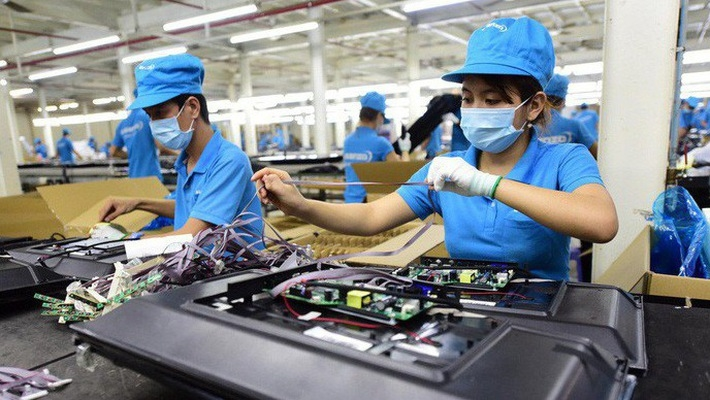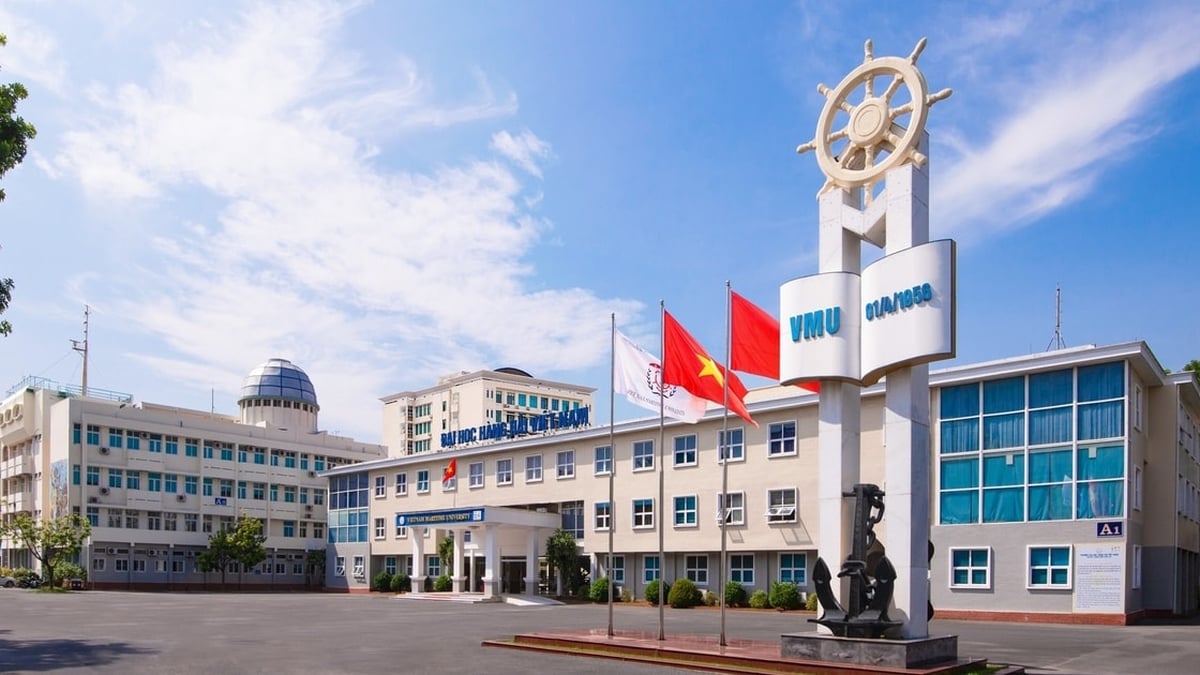Wrong, reactionary views on private economy
Hostile and reactionary forces have recently taken advantage of the development of the private economy in Vietnam to spread false arguments and distort the nature of the socialist-oriented market economy model. They deliberately propagate that encouraging the development of the private economy is a sign of abandoning the socialist foundation, or shifting to a capitalist economy, and they distort that the adjustment from the state economy to the private economy is a policy overthrow.
Some other wrong and reactionary views also claim that only the capitalist market economy is suitable for the law of development, and at the same time distort that Vietnam is "transforming to a capitalist economy under the guise of socialism". In addition, these forces also believe that the development of the private economic sector weakens the role of the state and collective economy, leading to social inequality and loss of control over national resources, using online forums, social networks and discussions posing as experts to propagate that "a market economy cannot exist under a one-party regime". These arguments not only distort reality, deny the achievements of the socialist-oriented market economy model, cause skepticism in public opinion, but also aim to undermine people's trust in the leadership of the Party and State, calling for changes in the political system.
Theoretical and practical basis of private economy
The private economy is essentially an economic sector owned by individuals or groups of individuals, operating for their own benefit but at the same time contributing to the general development of society. C. Marx and F. Engels pointed out that the private ownership regime is the cause of social inequality and human alienation. C. Marx pointed out that private ownership leads to "competition, economic crisis and ultimately capital concentration, increasing social injustice". However, C. Marx and F. Engels also affirmed that in some historical periods, the private economy can promote production and develop the labor force, creating the premise for social development and progress.
Illustration: tuyengiao.vn |
Inheriting this viewpoint, V. Lenin asserted that the private economy is an objective necessity in the transition period to socialism. V. Lenin emphasized: The policy of completely prohibiting private exchange is foolish and suicidal. The New Economic Policy (NEP) (1921) allowed small businesses and free trade to operate to restore the Russian economy after the war. This was considered a strategic step to exploit the potential of the private economy to develop productive forces, while orienting this sector towards socialism. V. Lenin affirmed: We will learn how to operate the economy from capitalists, including foreign capitalists.
In the process of building socialism in China, the private economy plays an important role, becoming one of the pillars of the socialist market economy. Currently, this sector accounts for more than 60% of GDP, more than 70% of technological innovation and creates more than 80% of urban employment, with more than 90% of enterprises in the private sector, which have contributed significantly to stabilizing economic growth, promoting innovation and modernizing the Chinese economy. In particular, since the reform and opening up in 1978, the private economy has developed rapidly, becoming the main driving force in China's industrialization and modernization. Strong government encouragement and support have helped China achieve great achievements, such as increasing the number of private enterprises in the list of the world's top 500 enterprises from 1 enterprise in 2010 to 28 enterprises in 2018. These figures show the indispensable role of the private economy in realizing the goal of the "Chinese Dream" and building a modern, high-quality developed economy.
For South Korea and Japan, the private sector plays a key role in economic development, becoming the main driving force for growth and modernization. In South Korea, since the 1960s, the government has implemented strategic policies to encourage the development of large corporations such as Samsung, Hyundai and LG through preferential loans, protecting domestic industries and focusing on key industries such as chemical and steel production. As a result, the private sector now accounts for more than 80% of GDP, creating a large supply chain and promoting the development of small and medium-sized enterprises. Meanwhile, Japan also considers the private sector an important pillar in its strategy to reshape the economy. The Japanese government has issued many support policies such as tax reductions for small and medium-sized enterprises, funding for research and development, and simplifying administrative procedures, helping the private sector account for more than 65% of the country's GDP.
Private Economic Development in Vietnam
In Vietnam, the private economy began to be officially recognized from the 6th Congress (1986), when the Party affirmed: "It is necessary to amend, supplement and widely publicize consistent policies towards economic sectors... Eliminate biases..." and recognize the need to "use all capabilities of other economic sectors in close association and under the direction of the socialist economic sector". Since then, this sector has gradually been recognized as an important component in the socialist-oriented market economy.
The document of the 13th National Congress of our Party emphasizes: The private economy is encouraged to develop in all sectors and fields that are not prohibited by law, and is supported to develop into strong, highly competitive private economic companies and corporations. At the same time, the Party sets a goal: By 2030, there will be at least 2 million enterprises with the private economic sector contributing 60-65% to GDP. This is a clear demonstration of the consistency in the Party's policy to develop the private economy into "an important driving force" to promote sustainable growth and improve people's lives.
Currently, Vietnam is facing many major challenges such as the risk of falling into the middle-income trap, a rapidly aging population and pressure from the Fourth Industrial Revolution. In this context, the private economy is identified as the leading important driving force to promote growth and enhance national competitiveness. General Secretary To Lam affirmed the role of the private economic sector, not only contributing greatly to GDP and creating jobs but also being a pioneer in innovation, economic restructuring and high-tech application; requiring the removal of all barriers and prejudices against the private economy; building comprehensive support policies such as improving the legal environment, developing modern infrastructure and training high-quality human resources. This viewpoint is not only consistent with the theory of Marxism-Leninism and Ho Chi Minh's thought, but also consistent with the Party's innovation policy, affirming that the development of the private economy is a creative application to meet practical requirements, and does not go against the path to socialism that the Party, State and people have chosen.
To develop the private economy in the current context, it is necessary to focus on key solutions such as perfecting institutions and building a transparent legal environment, protecting property rights and business freedom, encouraging innovation through digital transformation and high-tech application, as well as maximizing development resources. These solutions not only help private enterprises access resources fairly but also create conditions for this sector to become the main driving force for sustainable growth. Reality has proven that developing the private economy is not an abandonment of the socialist orientation as distorted by hostile forces, but is a creative application to help Vietnam escape the middle-income trap and achieve the goal of becoming a developed country by 2045. These wrong views need to be resolutely fought against and strongly refuted to protect the people's trust in the Party's leadership and the country's development path in the new era.
* Readers are invited to visit the section Protecting the Party's ideological foundation to see related news and articles.
|
|
Source: https://www.qdnd.vn/phong-chong-dien-bien-hoa-binh/luan-dieu-bop-meo-quan-diem-phat-trien-kinh-te-tu-nhan-o-viet-nam-hien-nay-827924




































































































Comment (0)